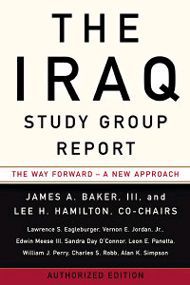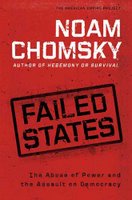
The
Pharos Book Club had the good fortune to discuss our latest reading selection, Kinglsey Amis'
Lucky Jim, a couple of weeks ago at Kelowna's El Dorado Hotel Dining Room. I have read several novels by Kingsley's son, Martin, including a title chosen by our book club,
Time's Arrow. While comparisons are inevitable, I don't know if they're terribly enlightening, and I'll resist the temptation to draw them here.
 Lucky Jim
Lucky Jim is the first book I've read penned by the elder Amis, and it is his debut novel, published in 1954. In its opening pages we see a protagonist, James Dixon, contorting his features while delivering calculated responses to the queries of an aging don in a provincial university in the English countryside. Dixon takes care to conceal his thoughts, though he is not especially expert at it. Presumably, these contortions reflect Amis' opinion of what we all do, projecting a congenial self, a facade, over our ulterior impulses.
It is not only Dixon who employs this technique. Dixon's nominal girlfriend, Margaret, relentlessly attacks Dixon in a series of histrionic allegations. When Margaret thanks Dixon for his "tact" after her recent suicide attempt, he "alerted all his faculties. Conundrums that sounded innocuous or even pleasant were the most reliable sign of impending attack."
Another of Margaret's pseudo-betrothed, Catchpole, says that although he was not interested in "any kind of sexual relationship" with Margaret, "she soon started behaving as if I had. I was perpetually being accused of hurting her, ignoring her, trying to humiliate her in front of other women." Not a flattering portrait of sexual relations.
And certainly an unflattering portrait of Margaret. This, together with later love interest Christine, led more than one of us to wonder aloud whether Amis betrays a streak of misogyny in the story. I prefer to believe otherwise. That these two flawed characters happen to be women is undeniable. But I think the question of misogyny can be dismissed for a couple of reasons. First, nearly every character, man and woman alike, is not especially virtuous. Look at the conniving Johns, the maddeningly absent-minded and manipulative Professor Welch, the Cro-Magnonic Atkinson (who would no doubt object to a poncey frog label like 'Cro-Magnon'), the infuriatingly self-absorbed Bertrand, the unscrupulous Caton. Second, Dixon and Christine are the only characters who develop over the course of the story, the only characters who renounce the comfort of their unfulfilling lives to risk embarking on an unknown future. As Dixon cousels himself while he begins to stray, "He had no charts for these waters, but experience proved that it was often those without charts who got the furthest." Or shipwrecked.

There are plenty of errant ports of call in the story that make this probably the most enjoyable selection of the
Club and one of the funniest books I've read. I confess I was a bit wary after reading the superlative quotes on the book's back cover. "I do not remember having laughed so much at a funny book as I have at
Lucky Jim," declared former poet laureate Sir John Betjeman (pictured). "A brilliantly and preposterously funny book," reads the
Guardian. I expected I would share very little of the sense of humour possessed by these two authorites of half a century ago. But
Lucky Jim lives up to the hype; it had me smirking right out of the gate, and laughing out loud going into the stretch.
One passage so memorable that two
Club members were able to quote some of it at the meeting when the book was pitched to the group described Dixon awakening with a hangover:
"Dixon was alive again. Consciousness was upon him before he could get out of the way; not for him the slow, gracious wandering from the halls of sleep, but a summary, forcible ejection. He lay sprawled, too wicked to move, spewed up like a broken spider-crab on the tarry shingle of the morning. The light did him harm, but not as much as looking at things did; he resolved, having done it once, never to move his eyeballs again. A dusty thudding in his head made the scene before him beat like a pulse. His mouth had been used as a latrine by some small creature of the night, and then as its mausoleum. During the night, too, he'd somehow been on a cross-country run and then been expertly beaten up by secret police. He felt bad."
His portraits of other characters are economically conveyed in equally hilarious vignettes. Once, when encountering Professor Welch outside the library, Dixon notes " a small golden emblem on his tie resembling some heraldic device or other, but proving on closer scrutiny to be congealed egg-yolk." Or on examining some of his matron's family photographs hung in the dining room, Dixon's rooming house mate, Atkinson, distills "the huge volume of abuse evoked by these sights into four tiny toxic gouts of hatred, one for each photograph."
The novel is one of the first satires of campus faculty life. Dixon is a marginal academe who acknowledges his inadequacy from the opening pages: "How had he become Professor of History, even at a place like this? By published work? No. By extra good teaching? No in italics." Dixon attempts to publish an article, "
The Economic Influence of the Developments in Shipbuilding Techniques, 1450 to 1485." Of his article, Dixon says, "It was a perfect title, in that it crystallized the article's niggling mindlessness, its funereal parade of yawn-enforcing facts, pseudo-light it threw upon non-problems [....] his [article] seemed worse than most in its air of being convinced of its own usefulness and significance." Dixon himself is not encumbered by such delusions.
He struggles throughout to maintain his facade of mere competence, having abandoned any pretense to erudition long ago. His dissertation on "Merrie England" is another hilarious vignette that I won't belabour here. The novel is full of comedy and wonderful turns of phrase. I can scarcely open to a page in the book and fail to find a memorable passage. The three bucks I paid for the 1976 mass market Penguin depicted above, complete with typo on the rear cover ("Kingsley Amis poked devasting [sic] fun at a very British way of life") is some of the smartest money I've spent. Try to find yourself a copy.
 The excerpt focuses on Bhutto's In-The-Event-Of-My-Untimely-Death letter addressed to President Musharraf, in which she reveals information about hostile members of the President's government. Bhutto describes one of these men as having dealings with a variety of unsavoury people including "Omar Sheikh, the Man Who Murdered Osama bin Laden." She does not explain the allegation. In the excerpt, Frost does not question it.
The excerpt focuses on Bhutto's In-The-Event-Of-My-Untimely-Death letter addressed to President Musharraf, in which she reveals information about hostile members of the President's government. Bhutto describes one of these men as having dealings with a variety of unsavoury people including "Omar Sheikh, the Man Who Murdered Osama bin Laden." She does not explain the allegation. In the excerpt, Frost does not question it. Says Bhutto:
Says Bhutto:








































